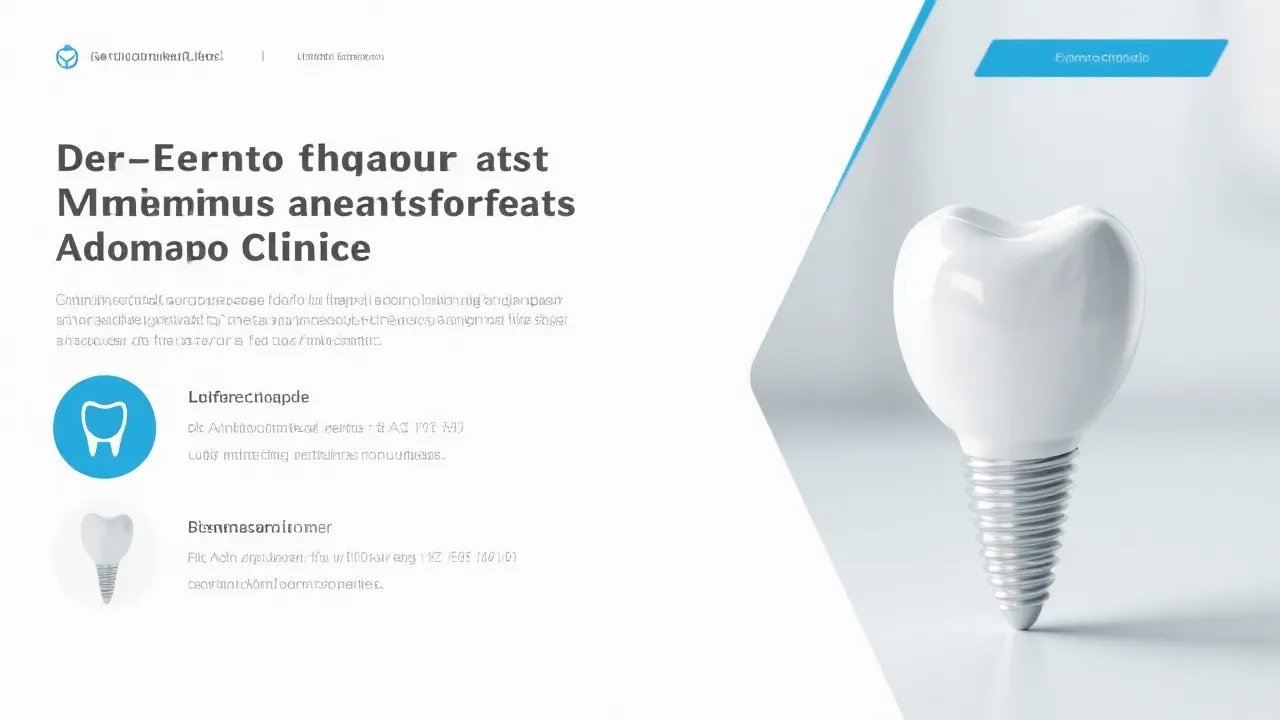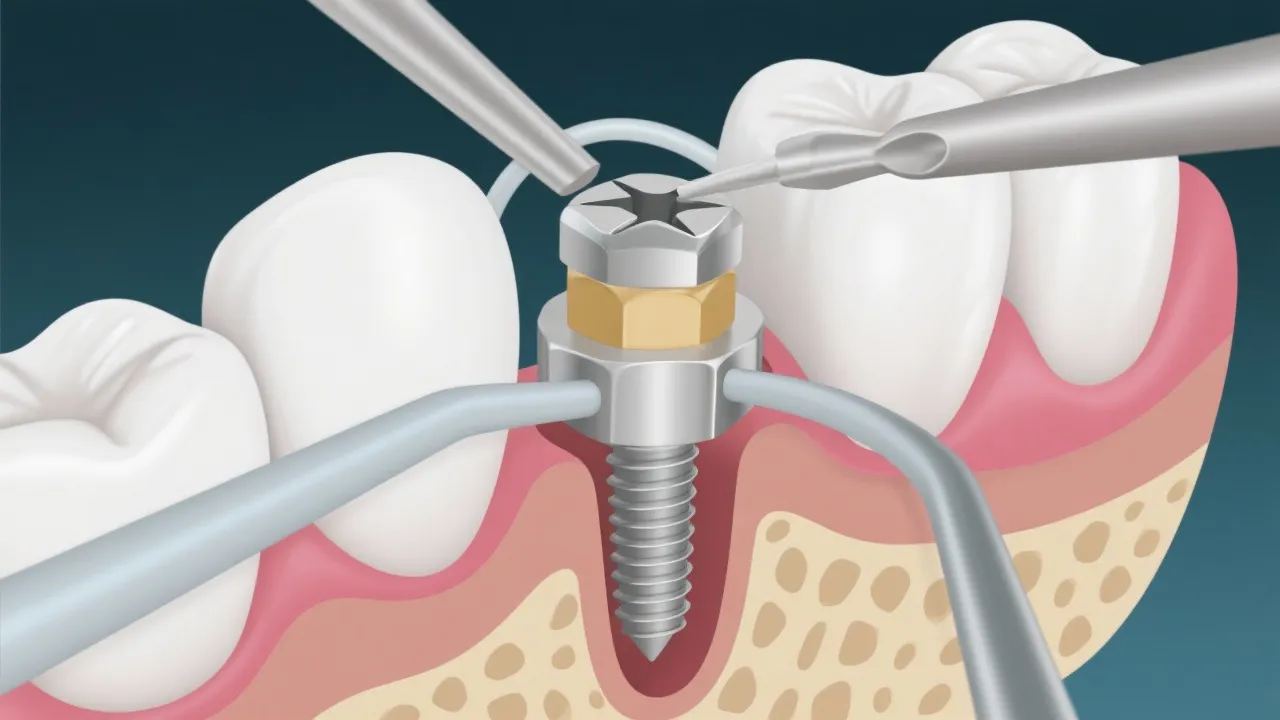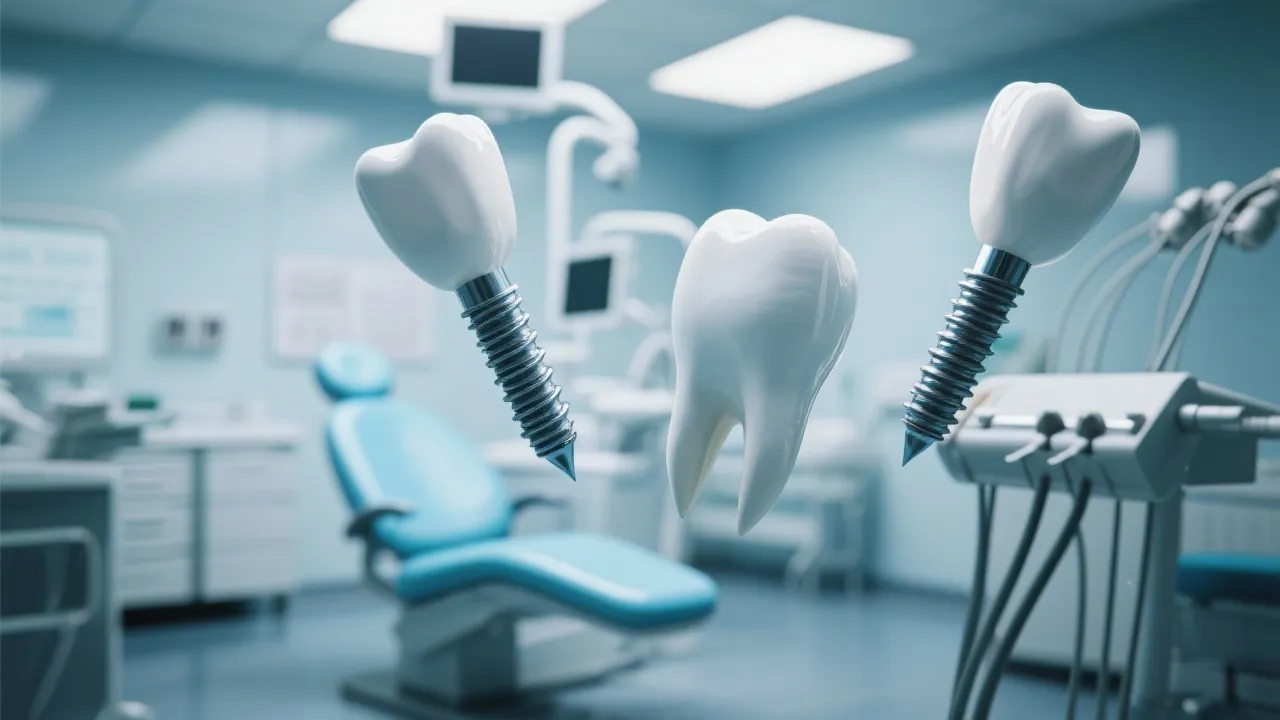Understanding Good Dental Implants
Good dental implants are a reliable solution for missing teeth, providing stability and aesthetic appeal. This article explores the benefits, costs, and various options available in different regions. It also highlights clinics offering low-cost dental implants and guides patients through the process of obtaining them. With comprehensive insights and a detailed comparison of services, individuals can make informed choices about their dental health.

Introduction to Good Dental Implants
Good dental implants have revolutionized the way we approach dental restoration. Unlike traditional dentures or bridges, dental implants provide a more durable and aesthetically pleasing solution for individuals with missing teeth. They are designed to blend seamlessly with existing teeth, improving not only appearance but also functionality. In recent years, advancements in dental technology have enhanced the effectiveness and accessibility of dental implants, allowing for a wider range of patients to benefit from this transformative procedure.
What Are Dental Implants?
Dental implants are titanium posts surgically placed into the jawbone, serving as artificial tooth roots. Over time, these implants integrate with the bone, providing a stable platform for crowns, bridges, or dentures. The end result is a natural-looking and fully functional tooth replacement. The process of getting dental implants involves several stages, including a thorough examination, the surgical placement of the implant, and the eventual attachment of the prosthetic tooth. Understanding each step of this process can help patients feel more comfortable and informed about their choices.
The Dental Implant Procedure
The dental implant procedure typically unfolds in several stages:
- Initial Consultation: A comprehensive evaluation is performed, including X-rays and possibly 3D imaging, to assess bone density and the overall condition of the mouth.
- Surgical Placement: Under local anesthesia, the titanium implant is carefully inserted into the jawbone. This surgery usually lasts a couple of hours, and many patients report minimal discomfort.
- Osseointegration: This is the healing phase, where the bone grows around the implant, firmly anchoring it in place. This process can take several months.
- Abutment Placement: Once healing is complete, a small connector called an abutment is placed on top of the implant. This serves as the attachment point for the crown.
- Crown Placement: Finally, a custom-made crown is attached to the abutment, completing the restoration. This crown is designed to match the size, shape, and color of your natural teeth.
Each stage is crucial for the success of the implant, and following your dentist's post-operative care instructions is essential.
Benefits of Good Dental Implants
- Durability: Implants are designed to last for many years, often a lifetime, with proper care. Unlike dentures, which may need to be replaced every few years, dental implants can provide a permanent solution.
- Natural Appearance: They mimic the look and feel of natural teeth, enhancing smiles. The materials used in implants and crowns are designed to blend well with existing teeth.
- Bone Preservation: Implants help maintain jawbone integrity, preventing bone loss that can occur with missing teeth. This is particularly important as bone loss can lead to further dental issues.
- Improved Oral Health: Unlike traditional bridges, implants do not require alteration of adjacent teeth, preserving overall dental health. This means that more of your natural teeth remain intact.
- Enhanced Functionality: Patients can eat, speak, and smile with confidence without worrying about their teeth shifting or slipping. Implants provide stability that dentures simply cannot match.
- Improved Self-Esteem: The confidence that comes with a complete and attractive smile can significantly enhance a person's self-esteem and quality of life.
- Convenience: Unlike removable dentures, dental implants do not need to be taken out for cleaning or at night, making oral hygiene simpler.
Cost of Good Dental Implants
The cost of dental implants can vary widely based on location, the complexity of the procedure, and the materials used. Below is a breakdown of estimated costs across different regions:
| Region | Currency | Price Range |
|---|---|---|
| United States (US) | USD | $3,000 - $6,000 |
| United Kingdom (GB) | GBP | £2,000 - £2,500 |
| Australia (AU) | AUD | AU$3,500 - AU$6,500 |
| Canada (CA) | CAD | CA$3,000 - CA$5,500 |
| Spain (ES) | EUR | €1,500 - €2,500 |
| Chile (CL) | CLP | CLP$800,000 - CLP$1,500,000 |
| Mexico (MX) | MXN | $15,000 - $25,000 |
| Colombia (CO) | COP | $2,000,000 - $4,000,000 |
| Peru (PE) | PEN | S/ 3,000 - S/ 6,000 |
| Brazil (BR) | BRL | R$3,000 - R$8,000 |
| Portugal (PT) | EUR | €1,000 - €2,000 |
Source:
Information about dental clinics and costs has been gathered from various online resources, including:
- Dental Views - Low Cost Dental Implants
- Atlantic Dental Group
- DentaVacation
- American Dental Health Plans
- Rockville Dental Arts
- Union City Mini Dental Implants
- Cigna - Guía de Implantes Dentales
- Rubi Odonto
- Odontologia Velasco
- DentalVidas
How to Obtain Low-Cost Dental Implants
For individuals seeking affordable dental implant options, the following steps can guide you through the process:
- Research Clinics: Start by researching dental clinics that specialize in implants and offer competitive pricing. Look for reviews and testimonials to gauge their services. It can be beneficial to consult forums and social media groups where patients share their experiences.
- Consultation: Schedule initial consultations with a few clinics to discuss your needs, treatment options, and costs. This is a good opportunity to ask questions and understand the implant process. Ensure you feel comfortable with the dentist and their approach.
- Insurance and Payment Plans: Inquire about insurance coverage for dental implants and any available payment plans that may help reduce out-of-pocket costs. Some clinics may offer financing options that can make the procedure more accessible.
- Consider Dental Tourism: If you are open to traveling, look into dental tourism options, where you can undergo procedures in countries known for lower dental costs while enjoying a vacation. Countries like Mexico, Costa Rica, and Hungary are popular for affordable yet high-quality dental care.
- Follow-Up Care: Ensure that the clinic provides follow-up care and support post-surgery, as this is crucial for the good success of your dental implants. Regular check-ups will help monitor the health of your implants and surrounding teeth.
Potential Risks and Considerations
While dental implants are considered safe and effective, there are potential risks and considerations to keep in mind:
- Infection: As with any surgical procedure, there is a risk of infection at the implant site. Following post-operative care instructions can significantly reduce this risk.
- Nerve Damage: Improper placement of the implant can lead to nerve damage, which may cause pain or numbness. A skilled oral surgeon can minimize this risk through careful planning and imaging.
- Sinus Problems: For upper jaw implants, there is a risk of sinus problems if the implant protrudes into the sinus cavities. This risk can be assessed during the initial consultation.
- Implant Failure: Although rare, dental implants can fail due to various reasons, including insufficient bone support or excessive stress on the implant. Regular follow-up visits can help catch any issues early.
FAQs
1. Are dental implants painful? Very few patients report minimal discomfort during and after the procedure, often managed with anesthesia and pain relief. Most describe the sensation as similar to that of a tooth extraction.
2. How long do dental implants last? With proper care, dental implants can last a lifetime, although the crown may need replacement after several years due to wear and tear.
3. What is the recovery time for dental implants? Full recovery can take several months, but most patients resume normal activities within a few days. Minor swelling and discomfort are common but manageable.
4. Are dental implants suitable for everyone? Most adults are candidates for dental implants, but factors such as bone density and medical conditions (like uncontrolled diabetes or smoking) may affect eligibility. A thorough evaluation by a dental professional can provide clarity.
5. How do I care for my dental implants? Caring for dental implants is similar to caring for natural teeth. Regular brushing, flossing, and dental check-ups are essential to maintain oral health and the longevity of the implants.
Disclaimer
The above information comes from online resources, and the data is as of October 2023. Dental implant prices are for reference only and may vary by region, clinic, and doctor. Always consult with a qualified dental professional for personalized advice and treatment options.
References
- Dental Views - Low Cost Dental Implants
- Atlantic Dental Group
- DentaVacation
- American Dental Health Plans
- Rockville Dental Arts
- Union City Mini Dental Implants
- Cigna - Guía de Implantes Dentales
- Rubi Odonto
- Odontologia Velasco
- DentalVidas
Choosing the Right Dental Implant Specialist
When considering dental implants, selecting the right specialist is paramount. Here are some tips to find a qualified dental implant surgeon:
- Check Credentials: Look for a dentist who has received specialized training in implant dentistry. Board certification and continued education are also good indicators of expertise.
- Experience Matters: Inquire how many implant procedures the dentist has performed. An experienced implant dentist is more likely to achieve successful outcomes.
- Patient Testimonials: Read reviews and seek testimonials from previous patients. Positive experiences can offer reassurance about the quality of care provided.
- Technology and Techniques: Ensure the clinic uses up-to-date technology and techniques for implant placement, as advancements in dentistry can greatly improve success rates.
- Personal Connection: It’s important to feel comfortable with your dentist. A good rapport can enhance your overall experience and make the process less intimidating.
Future of Dental Implants
The field of dental implants continues to evolve, driven by technological advancements and innovative research. Some trends and future directions include:
- 3D Printing Technology: The use of 3D printing in creating dental implants and prosthetics is becoming more prevalent. This technology allows for customized implants that fit better and integrate more easily with the patient’s bone structure.
- Regenerative Medicine: Research into stem cells and regenerative medicine may lead to the development of implants that promote faster healing and better integration with the jawbone.
- Mini Dental Implants: Mini implants are a less invasive option for patients with limited bone density. They require smaller incisions and can often be placed in a single appointment.
- Smart Implants: Future innovations may involve implants equipped with sensors that monitor the health of the implant and surrounding tissues, allowing for early detection of complications.
Conclusion
Good dental implants offer a reliable and effective solution for individuals with missing teeth. Their many benefits, from durability and natural appearance to improved functionality and oral health, make them a preferred choice for many. While costs can vary, options for obtaining affordable implants are available, including researching clinics, exploring dental tourism, and considering insurance coverage. As technology continues to advance, the future of dental implants looks promising, providing even more options and improved outcomes for patients. If you are considering dental implants, seek a qualified dental professional to discuss your options and create a personalized treatment plan that meets your needs.
-
1

Reducing Costs and Enhancing Technology in Solar Panels
-
2

Affordable Life Insurance Options for Seniors
-
3

Comprehensive Guide to Choosing the Right Smartphone
-
4

Unlock Affordable Online Learning: A Seniors’ Guide to Economical Educational Opportunities
-
5

Discover the Keys to Landing Your Perfect Work-from-Home Job: An Essential Guide










